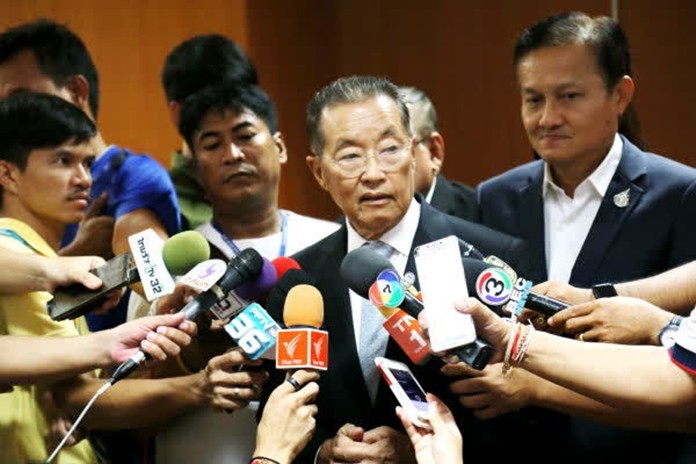
BANGKOK – The decision by the U.S. to suspend Generalized System of Preferences (GSP) treatment to Thailand, requiring all Thai exports to the U.S. to be subject to duties, has raised confusion among many sectors in Thailand. The government has confirmed this decision is not related to Thailand’s decision to ban three dangerous agricultural chemicals, and that the Prime Minister has been aware of this development since last month. The Minister of Labour has called an urgent meeting to address the labour concerns cited by the U.S. as a factor in the decision to revoke trade preferences.
The Minister of Labour Chatumongol Sonakul said this matter is related to many ministries, while the Ministry of Labour will be looking after the issue of foreign workers in Thailand, who he says are entitled to benefits and welfare but, understandably, each country will impose its own standard when it comes to foreign worker treatment which, in the case of Thailand, means they will not receive any greater benefits or rights than a Thai citizen.
Government spokesperson Narumon Pinyosinwat revealed the Prime Minister Gen Prayut Chan-o-cha received information last month when the U.S. Department of Commerce Secretary joined the ASEAN Economic Ministers Meeting in Thailand, where this topic was raised.
Deputy Prime Minister and Minister of Commerce Jurin Laksanawisit said the cancellation of GSP will add 1.5-1.8 billion baht in duties on Thai products imported into the U.S. each year. Overall Thai exports to the U.S. are currently valued at 1.3 billion U.S. dollars, which will be subjected to the U.S. import tax at 4-5 percent.
He said the reason behind the revocation of the duty-free preference is a labour issue, where the U.S. wants Thailand to allow immigrant workers to set up worker unions, and is not related to the campaign to ban the three dangerous chemicals.
The Minister of Commerce said Thailand can file an appeal of this decision, asking the U.S. to reconsider. He said, in previous years, there were reconsiderations of 7 product categories, and that the country will file reconsideration requests again, but it is up to U.S. agencies whether to review the requests.
 |
 |
 |





